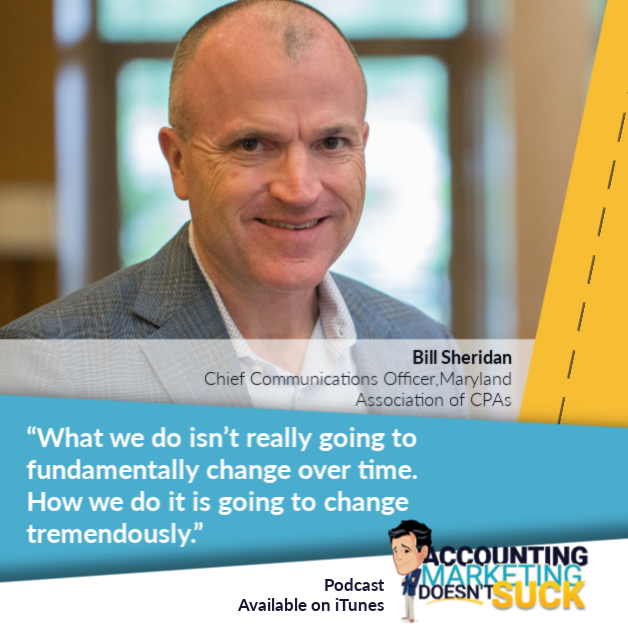

How Accounting Firms Can Thrive With Strategic Side Hustles
| |
Accounting firms—especially small to mid-sized practices—often have standalone side businesses - have adjunct services like payroll, entity selection and other services that gradually grow over time but don't take much of the owner's time.
One increasingly popular solution is to layer profitable, adjacent “side hustles” onto the core compliance and advisory work. Done thoughtfully, these ancillary services deepen client relationships, cushion seasonal cash-flow swings, and differentiate the firm in a crowded marketplace. Below is a practical guide to four of the most common—and lucrative—extensions:
-
Payroll Processing
-
Business Incorporation & Entity Selection
-
1031 Like-Kind Exchange Facilitation
-
U.S. Expatriate Tax Services
1. Payroll Processing
Why it fits. Payroll is a natural bolt-on: accountants already have the client’s financial data, understand compliance deadlines, and speak the language of tax remittance. Adding payroll converts periodic tax work into predictable monthly revenue and can be managed by less expensive staff.
Revenue model.
-
Per-employee subscription: A base fee plus a small charge per head.
-
Year-end upsell: W-2/1099 preparation and state unemployment audits.
Operational watch-outs.
-
Invest in a scalable cloud platform—look for white-label options if you want the firm’s branding.
-
Automate federal and multi-state withholding calculations to minimize risk.
Strategic upside. Payroll embeds your firm in the client’s weekly cash cycle, making you indispensable and greatly reducing churn. It is also easy to sell as a standalone for Paychex, ADP and other payroll providers.
Here are website examples of accountants providing payroll services separately.
2. Business Incorporation & Entity Selection
Why it fits. Start-ups, freelancers, and property investors constantly need LLCs, S corps and guidance on incorporations. Accountants can deliver a one-stop shop that marries compliance with proactive tax structuring. In certain states, incorporations are designated as a no go zone so setting it up as a separate entity can be a workaround.
Revenue model.
-
Flat-fee formations: Bundled state filing, EIN acquisition, and initial resolutions.
-
Registered agent + annual report retainer: Recurring subscription, often $150–$350 per entity per year.
-
Cross-sell advisory: New-entity tax elections, chart-of-accounts setup, sales-tax registrations.
Operational watch-outs.
-
Monitor 50-state filing nuances (e.g., New York’s publication requirement, California’s franchise tax).
-
Implement e-signature workflows to speed turnaround.
-
Maintain robust KYC procedures to deter shell-company misuse.
Strategic upside. Business formation work positions your firm at the very birth of a business relationship—often yielding lifelong tax, assurance, and advisory revenue. Here is a website that we designed for entity selection and business formation services as a side hustle.
3. Facilitating 1031 Like-Kind Exchanges
Why it fits. Real-estate investors lean on trusted advisors to defer capital gains tax through IRC §1031 exchanges. While accountants cannot act as the qualified intermediary (QI) in a transaction for their own tax clients, they can still capture substantial value:
Service tiers.
-
Pre-exchange consulting: Deal-structuring, boot calculations, and cash-flow projections.
-
Coordination with QIs and legal counsel: Ensuring timelines (45-day identification, 180-day replacement) stay intact.
-
Post-exchange compliance: Basis tracking, depreciation schedules, and eventual step-up planning.
Revenue model. Hourly advisory or fixed packages for each exchange, plus optional retainers for multi-property investors.
Operational watch-outs.
-
Master the strict IRS timelines—one missed day can disqualify the entire deferral.
-
Keep a rolodex of reputable QIs and commercial brokers to refer out.
-
Document every piece of the identification list and replacement property valuation.
Strategic upside. 1031 work often uncovers broader estate-planning, cost-seg, and wealth-management opportunities. Here is a side hustle that we designed for 1031 Exchanges.
4. U.S. Expatriate Tax Services
Why it fits. Roughly 9 million Americans live abroad, and many expats struggle with dual-country filing obligations, FBAR/FinCEN reports, and the Foreign Earned Income Exclusion (FEIE). Traditional CPA firms rarely specialize here, leaving a lucrative niche.
Revenue model.
-
Tiered returns: Price based on complexity—single-country employees, multi-country consultants, or self-employed digital nomads.
-
Annual compliance bundles: U.S. Form 1040 + foreign return + FBAR, billed at a premium.
-
Value-add advisory: Tax equalization for corporate assignees, shadow payroll, and treaty analysis.
Operational watch-outs.
-
Stay current on FATCA thresholds and treaty tie-breaker rules.
-
Leverage cloud tools for secure, round-the-clock document exchange across time zones.
-
Offer weekend or evening consult slots to sync with clients in Europe or Asia-Pac.
Strategic upside. Expat engagements are sticky; once you solve someone’s cross-border tax headaches, they rarely switch providers. Here are examples of Expat Tax Services.
5. ROBS Arrangements
Why it fits. Many Americans would love to operate their own business later in life but don't have the capital to invest. However, many have large 401k plans with healthy balances that can be used to fund a brand new business with ROBS (Roll-Over as a Business Startup).
Revenue model.
- The Employer Retirement Income Security Act of 1974 (ERISA) provides taxpayers with control over their retirement investments. This includes funding a brand new business such as a franchise.
- While ROBS Arrangements are legal, there is significant compliance work required that most local accountants are not willing to provide. This increases your retention rate for this type of service.
Here is an example of a CPA Firm providing ROBS Arrangements as a side hustle.
Final Thoughts
Side hustles aren’t mere add-ons; they’re strategic extensions of your core advisory DNA. By embedding payroll, incorporations, 1031 exchanges, expatriate tax and ROBS Arrangements as a standalone business, you build resilient, recurring revenue streams while delivering holistic value to clients. The key is disciplined execution—select one niche, master it, automate ruthlessly, then rinse and repeat. Within a year, you’ll not only protect margins but also transform your firm into an indispensable, full-cycle financial partner.

